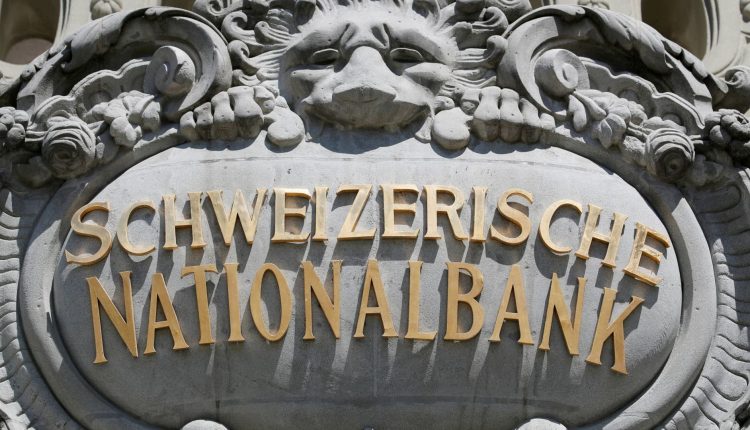A Swiss National Bank logo is pictured on the SNB building in Bern, Switzerland May 20, 2020.
Arnd Wiegmann | Reuters
The Swiss National Bank ended its streak of five consecutive increases, keeping interest rates unchanged at its quarterly monetary policy meeting on Thursday.
The bank, which began lifting rates out of negative territory in June 2022, held its main policy rate steady at 1.75%.
“The significant tightening of monetary policy over recent quarters is countering remaining inflationary pressure,” the SNB said in a statement.
“From today’s perspective, it cannot be ruled out that a further tightening of monetary policy may become necessary to ensure price stability over the medium term.”
Inflation in Switzerland came in at an annual 1.6% in August, comfortably below the central bank’s 2% target, and sits significantly lower than that of the country’s peers — headline inflation across the euro zone ran at 5.3% last month.
The Swiss franc has also been the best performing G10 currency this year, while the Swiss economy stagnated in the second quarter, signaling that this could be the last hike from the SNB this cycle.
The Swiss Market Index was the only blue chip stock index in Europe to trade in positive territory on Thursday morning, gaining 0.4% in the hour after the SNB’s decision to hold rates.
At its previous meeting in June, the central bank opted for a 25 basis point increase, after increments of as much as 75 basis points previously.
The SNB noted that the growth outlook for the global economy in the coming quarters “remains subdued,” although inflation is “likely to remain elevated worldwide for the time being.”
“Over the medium term, however, it should return to more moderate levels, not least due to more restrictive monetary policy,” the central bank said.
But the SNB suggested that a “pronounced slowdown in the global economy” cannot be ruled out, given persistently high inflation elsewhere in the world, which could necessitate further monetary policy tightening for some central banks. The SNB’s comment also factored in a possible deterioration of the energy situation in Europe over the winter.
The central bank cited this prospective slowdown as the main risk to the Swiss economy, which it expects to grow by around 1% this year, as unemployment continues to rise slightly and the utilization of production capacity declines.
Read the full article here

